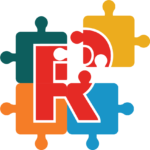Mental Rotation
What is mental rotation?
Mental rotation refers to the cognitive process of imagining how an object or shape would appear if it were rotated in space. It involves visualizing the movement of an object or shape in the mind's eye and is considered a key aspect of spatial reasoning, which is critical in tasks like navigation, understanding diagrams, and manipulating objects.
How does Jigsaw puzzle help in enhancing the cognitive skill of mental rotation?
Solving a jigsaw puzzle helps in development of cognitive skill Mental rotation is an essential cognitive skill used while solving a jigsaw puzzle, as it helps individuals visualize and manipulate puzzle pieces in their mind to determine how they fit into the larger picture. Here's how it works during the process:
How does solving a Jigsaw puzzle help in developing constructional praxis?
- Visualizing the Piece in Different Orientations: When a puzzler picks up a piece, they often mentally rotate it to see if it fits into a particular spot, even before physically trying to place it. This involves imagining the piece at different angles to determine the correct orientation.
- Matching Shapes and Patterns: Jigsaw puzzles rely on matching shapes, colours, and patterns. Mental rotation helps in adjusting the perspective of a piece to see if its shape or edge matches the open space in the puzzle, even if the piece is initially oriented differently.
- Problem Solving and Spatial Awareness: As the puzzler progresses, they continuously use mental rotation to test various configurations of pieces, building their spatial awareness and ability to mentally manipulate objects. This skill helps them visualize how the pieces could connect without having to physically rotate each one.
- Speed and Efficiency: The better a person is at mental rotation, the more efficiently they can solve puzzles. They can quickly eliminate pieces that won’t fit in a particular space by rotating them in their mind, saving time and effort from trying all possibilities physically.
A key outcome of the problem-solving process in jigsaw puzzles develops mental rotation which allows individuals to mentally twist and turn puzzle pieces to find the correct fit.
